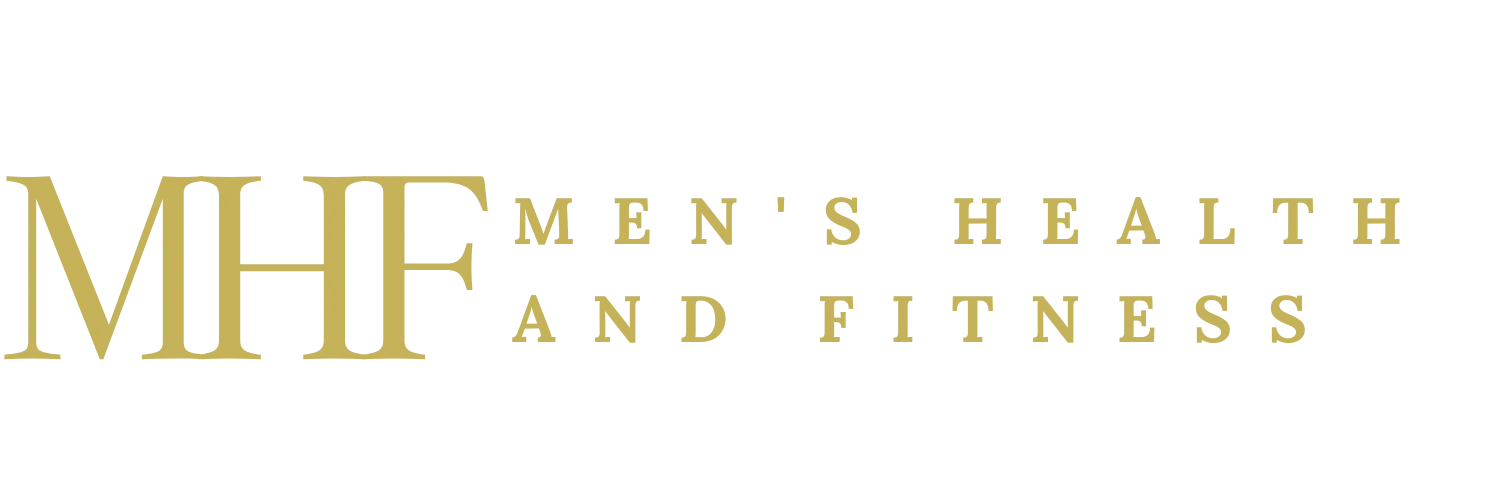The Best Tips and Hacks for Enjoying Quality Sleep
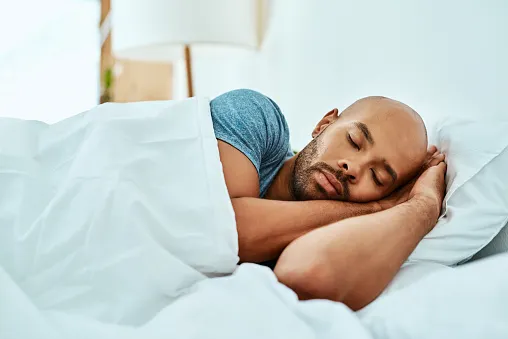
We all suffer from insomnia at some point in our lives. It can be caused by a stressful career period, a personal crisis, fear of an upcoming event, or worrying about finances.
The feeling of guilt or grief is another contributing factor.
You know how hard it is to get out of bed in the morning, regardless of what keeps you tossing and turning. The lack of sleep will affect your whole day - and not for the better.
Your body hurts, your mind is foggy, and you feel irritable and grumpy. Your sleepless night will impact your mood all day.
It is estimated that sleep issues can become extremely debilitating over time. Sleep problems can have an adverse effect on your career, social life, and personal relationships. In some cases, they may even threaten your mental stability.
Many people suffer from insomnia on a regular basis, but for others, insomnia is an issue that comes and goes. For most of us, insomnia is closely related to our sleep patterns. Sleep deprivation can damage both our mental and physical health.
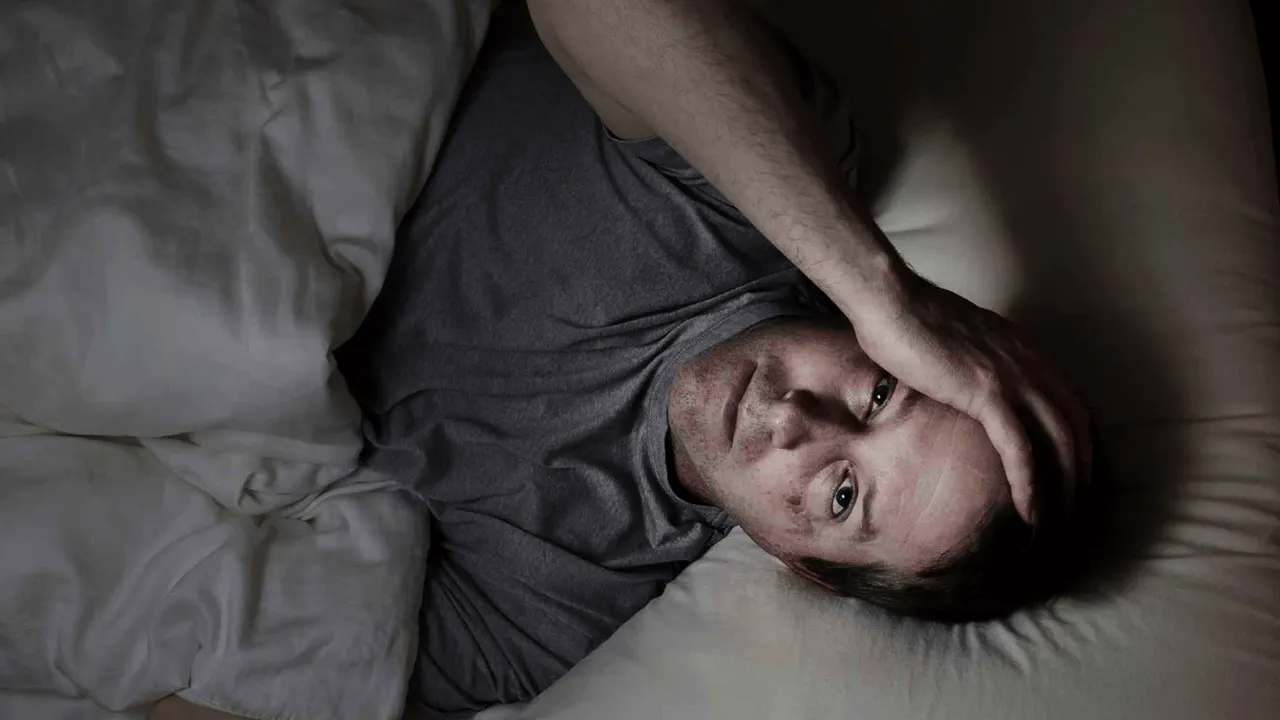
We are more likely to suffer from chronic illnesses and age faster when we are depressed, have high blood pressure, and have an uncontrolled hormone system.
Since you are reading this article, you probably have a sleep problem and want to do something about it. Even though you have tried countless remedies (like drinking warm milk before bed or counting sheep), nothing seems to work. You may have tried prescription medication, adding to your problem the risk of addiction. Are you destined to suffer from sleep problems forever?
Absolutely not.
In order to overcome stubborn sleep problems, biohacking can be the best solution. It's totally safe, easy, relatively cost-free, and guaranteed to work.
We are about to introduce you to the tools that you will be able to use to enhance sleep and improve your overall health and well-being. You will be able to alter and regulate your sleep patterns easily.
When you incorporate biohacking techniques into your lifestyle, you will be able to sleep soundly and restfully on a regular basis.
A Brief Introduction to Biohacking
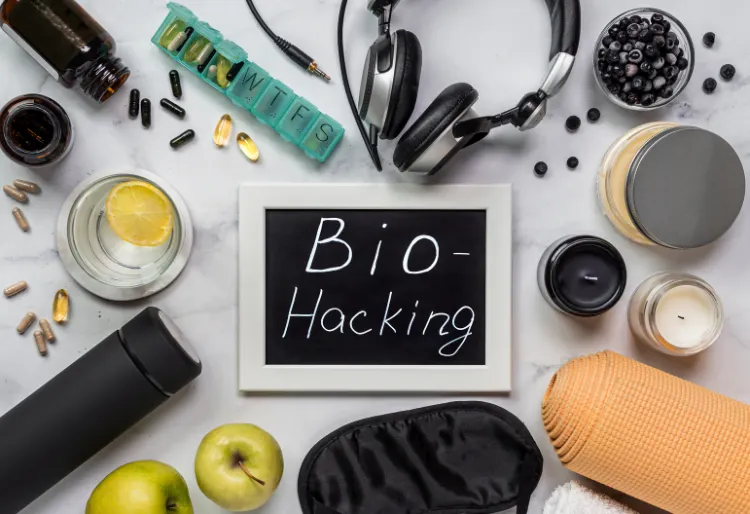
Are you a big fish fan? Do you use essential oils to relieve stress and boost your mood? Perhaps you follow a diet rich in antioxidants or exercise regularly to keep your heart healthy. In that case, you are already a biohacker. It's not a secret that most of us are biohackers in some form or another.
What is Biohacking?
The goal of biohacking is to "hack" your body's biological processes and make positive changes to your health.
• The idea behind biohacking is simply to improve health, prevent disease, and get over sleep deprivation by making simple changes to diet, exercise, and sleep habits.
• Although it is based on biology, it is not a science in and of itself, as it is relatively new. Despite its potential, research in the field is ongoing and the results are very promising. A number of physical and mental health areas have already been shown to benefit from biohacking.
• Because everyone's body cycles and rhythms are different, biohacking is an experiment. Various "hacks" may work for some people, but not for others. Therefore, it's a process of trying out different ones until you find one that works. No one is going to hurt their bodies if they experiment with them. There are no harmful consequences to trying out the tools. You can play around with them and see which ones - if not all - improve your sleep.
• Biohackers Dave Asprey and Ben Greenfield are famous for their experiments on themselves, new products and hacks in the field of nutrition and fitness.
There are three categories of biohacking:
1. Nutrigenomics deals with nutrition, stress management, and how you can manipulate your surrounding environment, such as light and sound.
2. DIYBIO or do-it-yourself biology. In this setting, nonprofessional scientists conduct biohacking experiments and share their results with likeminded individuals. The aim is to prove that even the common layman can become skilled at biohacking.
3. Grinder biohacking focuses on technology such as implants and chemical supplements for hacking the body's biology. As the risks may outweigh the benefits, this is not recommended for the average person. This is better left to the diehards.
What should you focus on?
For physical and mental health, it is not the number of hours of sleep that matters. It is the quality of sleep.
Even when people sleep for 7 – 8 hours a night, they still feel drained and unrested. This is because their sleep is poor quality. They are unable to enter a state of deep sleep that rejuvenates and relaxes the body. Quality sleep means waking up energized and filled with vitality, regardless of how many hours you have slept. You need to be focusing on falling asleep, but also sleeping well, not just falling asleep.
There are a number of safe, natural biohacking methods for enhancing our sleep quality.
The following sections discuss some of the most popular and effective sleep hacks.
• Get rid of insomnia
• Getting to sleep faster
• Increase sleep duration
• Improve the quality of sleep
• Promote deep, restful sleep
Biohacking is not something that requires complex equipment and sophisticated measurements to monitor brainwaves and other responses, as some so-called experts claim.
Nobody knows your body better than you. You'll know what works best for you by how you feel. You'll know if it works by how much better your sleep is.
As you gain more knowledge and skills, you may be interested in trying gadgets and measuring tools.
Let's keep things simple for now.
Eliminate blue light
Exposure to blue light sources, especially in the evening, is believed to disrupt sleep by disrupting the brain's production of melatonin, a hormone that regulates waking and sleeping.
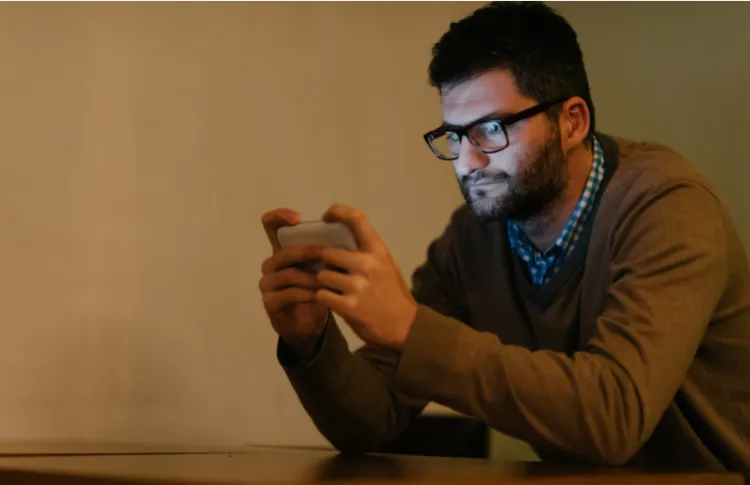
A great deal of blue light comes from windows, as well as regular bulbs and LED bulbs. Digital screens such as PCs, laptops, tablets, and TVs also emit a great deal of it.
In order to get a better night's sleep, keep as much light out of your bedroom as possible.
You can accomplish this in several ways:
• Blackout curtains completely block sunlight, which is especially useful for late sleepers and people who work night shifts and sleep during the day.
• A low-intensity amber night light works well if you can't sleep in a completely dark room. You may also want to install dim amber lights in the hallway for trips to the bathroom so you can fall asleep again quickly once you are back in bed. These bulbs don't emit blue light.
• Invest in a blue light-filtering sleep mask. However, keep in mind that you absorb blue light through your skin. If this hack does not work for you, try using blackout curtains.
• Make sure your home lighting is sleep-friendly. Melatonin is a hormone that our bodies begin producing two hours before we go to sleep, making us feel sleepy.
However, too bright lighting, TV screens, and computer screens can inhibit the production of melatonin. Avoid watching TV or using the computer directly before bedtime (amber or red and yellow spectrum lighting is the best choice).
This is because when your skin absorbs blue light, it starts producing cortisol, a hormone that increases alertness and weakens the effect of sleep-inducing melatonin.
• Wear amber-tinted glasses during the last 3-4 hours of daylight. A simple hack that supports the production of melatonin during the evening hours is known as "dim light melatonin production". The amber-tinted glasses are inexpensive and come with yellow or orange lenses - but they could be just the sleep hack you need. You can find them online as well as on Amazon.
If you banish blue light sources from your surroundings during the evening, you should notice a dramatic improvement in your sleep in a few days.
Invest in a Sleep App
The latest sleep apps are easy to use, have varied features, and are designed to help you get a good night's sleep.
You will be guided into a restful sleep by their ability to calm your brainwaves and create a relaxing environment.
In most sleep apps, you can choose from an array of soothing sound recordings to help you fall asleep. There are also guided meditations, white noises, wind rustling through trees, and various ambient sounds included in some apps, such as rain, ocean waves, and wind blowing through trees.
In addition, there are some apps that offer a variety of soothing classical and contemporary music, so you can find one that works best for you.
Other features include:
• In some apps, you can even measure your snoring with a dashboard that displays sleeping patterns and quality of sleep percentages.
• The app Recolor allows you to create sleep-promoting and anxiety-relieving artwork. If you enjoy art, you can select a custom color palette that you can use to create your artwork.
• There are several apps that contain hypnosis tracks that help you relax and calm your mind.
• Some contain alarms so you can take short naps throughout the day.
• There are a wide variety of sleep apps available for Android and iPhone, including Sleep Cycle, Pillow, Digipill, Recolor, and Sleep Time, which range in price from $3 to $10.
Helpful tip:
It has been proven that white noise, as a whole, has a great sleep-inducing effect, and numerous studies confirm this. You can easily access white noise without using a sleep app by using a fan. A ceiling fan or a regular fan will work equally well. Simply turn it on all night. The sound will lull you to sleep and the consistent whirring will help you sleep deeply.
The first thing you should do is try out a few of the free apps first. If you enjoy using them and are pleased with the results, then that's great. If not, you haven't wasted any money.
Seek Out the Sun
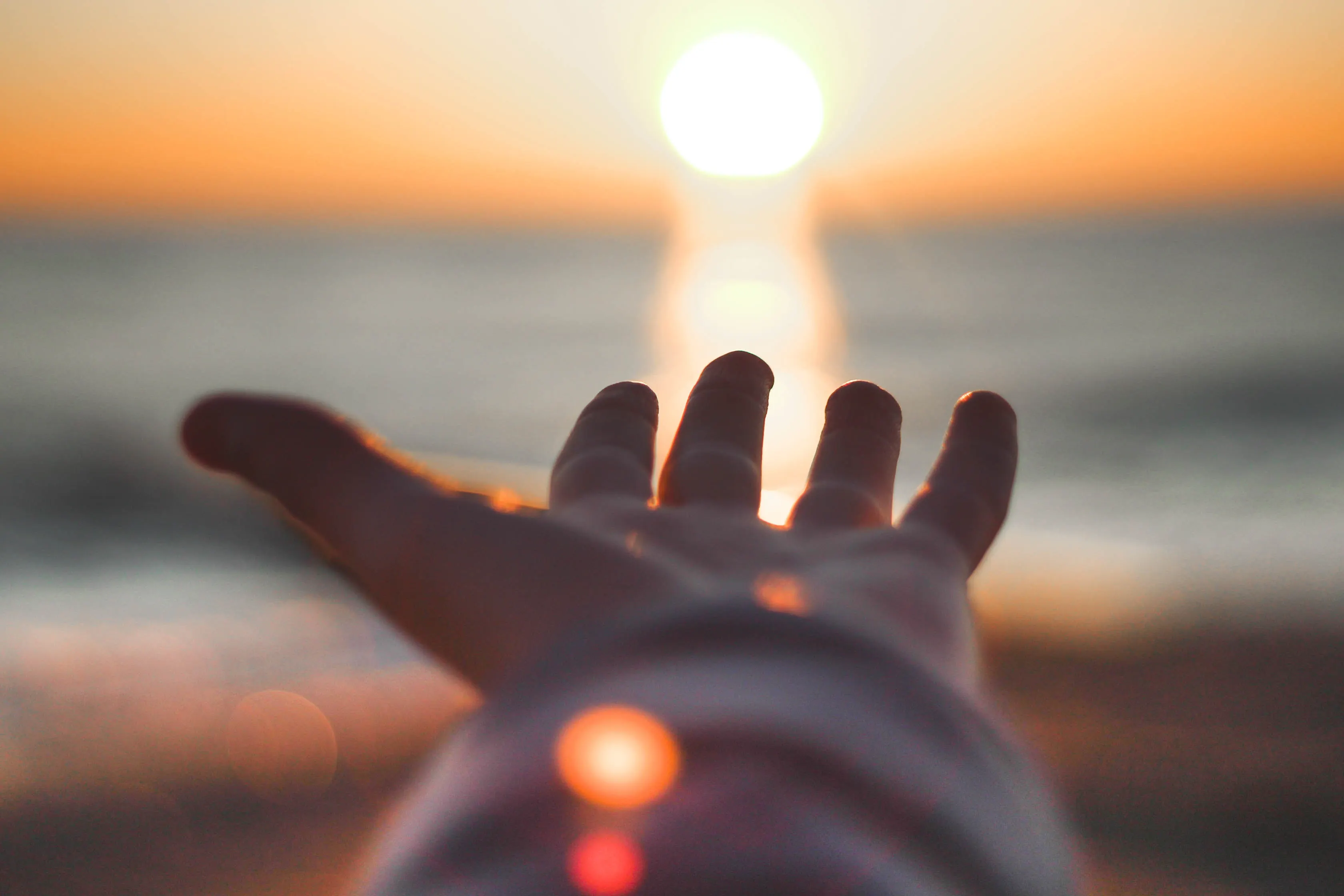
There are some cases in which blue light from the sun may actually help us sleep better.
We must avoid blue light in the evening, as we discussed earlier. However, exposure to blue light during the daytime is a completely different thing.
Our body's internal clock is maintained by sunlight, which sends signals to the pituitary gland and hypothalamus. We need a stable circadian rhythm in order to have quality sleep. In addition to regulating melatonin, our circadian rhythm also regulates a variety of other important hormones. Melatonin is vital to sleep and also fights depression, which may affect sleep quality.
By spending time outdoors during the day, your body releases 'dim-light melatonin' which is responsible for waking you up when it's dark.
You can use this simple sleep hack whenever you like. Whether you're taking a walk in the park during your lunch break, or having a smoothie at an outdoor café, you'll find opportunities to get some sun.
Ideally, 15 to 20 minutes a day should be spent in the sun. However, there are many factors to consider, including the climate, season, time of day, how sensitive your skin is, and the amount of exposed skin.
During the daytime, sitting near a well-lit window is another way to expose your skin to blue light. This is great for rainy days or when it's too cold to go outside.
Use a Light Therapy Box
You can use a light therapy box if you often have difficulty getting into the sun. This is a device that emits blue wavelength light. It is designed to balance your circadian rhythm, as sunlight does.
It's best to place the light box a few feet from you but not directly in front of you.
Exposure yourself to the light for 15-30 minutes is recommended. Make sure to expose as much skin as possible during your session. To maintain your circadian rhythm, you should do this the same day every day.
There you go. Another super easy and effortless sleep hack!
Sleep-Friendly Food Hacks
It's no secret that we all love food, and luckily for us, this food hack contains foods that we all enjoy. Prepare tasty dishes that will not only make you sleep better, but also let you get your creative juices flowing.
Take a look at the following list of sleep-friendly foods that have been proven to improve your sleep quality. Add them to your diet, especially at dinnertime, and be amazed at how you sleep better.
• Kiwi
• Fatty fish (salmon, tuna, halibut, mackerel)
• Cherries
• Poultry
• Avocadoes
• Leafy greens, especially spinach
• Nuts, especially pistachios, almonds, and walnuts
• Cheese
• Chamomile tea
• Starchy foods (potatoes, yams, plantains)
• Peanut butter
• Bananas
• Oatmeal and cereal
A protein found in these foods is tryptophan, an amino acid which produces serotonin (a hormone that relieves stress, calms the mind, and lifts the mood). Eating these foods regularly promotes what scientists call "sleep hygiene". As part of sleep hygiene, we develop food habits, especially before bedtime, that promote a good night's sleep.
Most people love these foods and you can combine them in salads, desserts, casseroles or even eat them by themselves every day. At least one or two of these foods should be eaten at every meal, especially dinner time. A handful of nuts, a small bowl of oatmeal, or a banana are good snacks for before bedtime.
Practicing food hygiene is one hack that is easy and enjoyable. Play around with sleep-friendly foods to determine which ones are best for you.
Don't sabotage your sleep by indulging in the following foods:
All coffee, sodas, and energy drinks contain caffeine (even non-cola soda does).
• Chocolate
• Chili and spicy foods
• Peppermint
• Alcohol is a major sleep disrupter. Alcoholic beverages will prevent your brain from entering the deep sleep cycle necessary for quality sleep.
• Fat-rich foods
• Salty foods
• Watermelon and cantaloupe are high in water content, meaning you want to avoid having frequent bathroom trips during the night.
The point isn't that you should eliminate these foods from your diet permanently.
Personally, I wouldn't function without my morning cup of coffee. However, you should limit them to the daytime hours in order to get a good night's sleep.
Make it a rule to abstain from sleep-disrupting foods by noon. If you must have that hamburger or bag of chips, have it for lunch.
Acupressure Mat Hack
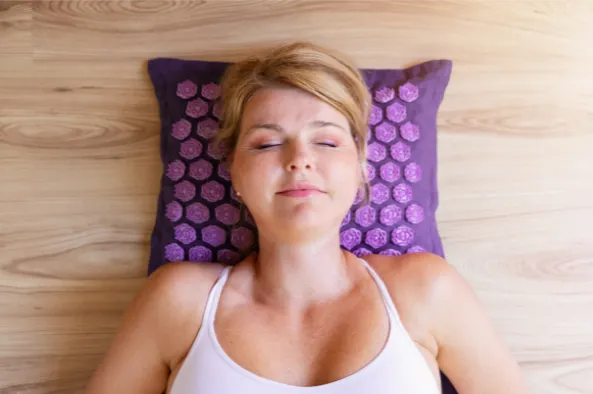
There are protruding spiked plastic disks embedded in this mat, which are padded with foam and covered in sacking. It is allegedly an adaptation to a bed of nails yogis use during meditation, but you won't feel as hard with an acupressure mat! It works in much the same way as an acupressure machine or massage chair, but at much less cost.
These mats range in price from $20 to $40 and are available online. They are surprisingly durable and easy to clean.
How does an acupressure mat work?
• Most mats have more than 800 "massage points" or spikes that deeply massage your body, relaxing tense muscles, relieving aches and pains, and promoting restful sleep.
• Many people who have used them report that they immediately improve their sleep quality.
• The acupressure mat is also effective for relieving back, neck, and joint pain, combining the benefits of sleep deprivation and acupressure.
• It improves digestion and metabolism, making it a "holistic hack" for overall health and wellness.
• It promotes sound sleep by improving blood circulation.
How to use an acupressure mat
There are many ways to use the mat, including on chairs, benches, beds and the floor.
It's light enough to take to the beach and the park. If you have time, you can use it twice daily, once in the morning and then in the evening. All you have to do is lie on it for a minimum of two to thirty minutes daily, or for as long as you like. It is completely safe and has no side effects.
• Just like a massage therapist, schedule time every day for a relaxing session.
• The first 3 - 5 minutes will feel painful, but after that you'll become comfortable and enjoy the sensation. Users have described the sensation as "pure bliss".
• If you want an intense massage, you should use it on the ground. Some people love it, but others find it uncomfortable. Experiment with different surfaces until you find the perfect one.
• In order to maximize the benefits, you might want to wear a bathing suit or even go completely naked if you feel confident that you are protected from prying eyes.
• The mat can be used to relieve stress and relax if you are into yoga or meditation.
Restrictions
In general, there are no restrictions based on gender or age.
There are only 3 exceptions:
• If you are pregnant
• If you are suffering from skin rashes
• If you have cuts, wounds or burns on your skin.
Binaural Beats and Music Therapy
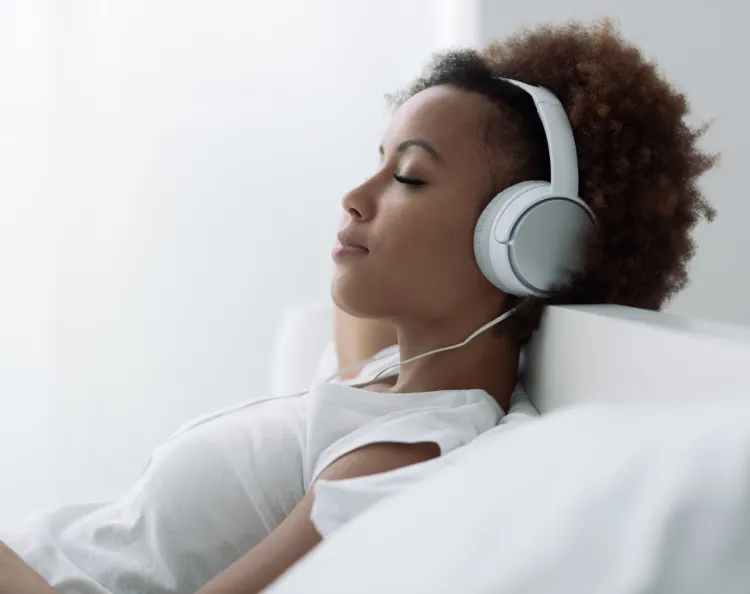
A binaural beat is a series of auditory tones that affect a person's brainwaves. It works by changing the brainwave frequency resulting in specific outcomes. It is used to improve creativity, concentration, and sleep.
Binaural beats: how do they work?
• There are special binaural beat headphones on the market. However, any good quality headphones will also work. Since the sound frequencies are different in each ear, stereo headphones are necessary.
• To be effective, each tone's frequency must be less than 30 Hz. This allows the two different beats to be heard together as one sounds.
• Frequency Following Response occurs in the brain when it perceives two beats as one consistent sound frequency. It regulates its waves accordingly.
• In binaural beats, specific algorithms are used to hack your brain into a specific frequency. Our brains use different frequencies when performing tasks. For instance, for sleep, it uses Delta and Theta waves.
• These brainwaves are associated with relaxation and calm. Binaural beats are created by hacking your brain into generating these signals.
This is not some bizarre, alien music. Binaural beats are incredibly soothing, ethereal, and beautiful. They are perfect to relax and drift off to sleep.
You can also purchase a subscription package or audio track package if you really enjoy it. Just make sure you have good headphones to get the most out of this.
Music therapy
You have another alternative if nature sounds or binaural beats aren't your thing. If you love music, then music therapy is a perfect hack for you. Relaxation and sleep have been scientifically proven through the use of soothing music. Furthermore, music therapy has been shown to balance the circadian rhythm, which helps relieve physical stress that is causing bad sleep.
How does it work?
The brain learns to relax almost instantly when soothing waves of music interconnect with our brainwaves and we drift off to sleep. Over time, this type of music will become associated with sleepfulness and you will have no trouble falling asleep.
What is meant by "soothing" music?
Research shows that loud, fast music like hard rock or rap will wake you up, while soothing music is slower with soft sounds and beats. The best music for sleep is:
• The Moonlight Sonata by Beethoven is a popular classical piece.
• The soft rock genre is perfect for when you want to relax. If you love hard rock, listen to it while you're at work.
• Ambient music includes instrumentals with slow to medium beats. You can also find instrumental versions of your favorite songs. Hotel California is one of the best known.
• Hymns. A great choice for those who are religious or spiritually inclined.
• You may find that some genres - not necessarily your favorites - work better for you, too. You may not be religious, but find that hymns are soothing for you.
Aromatherapy
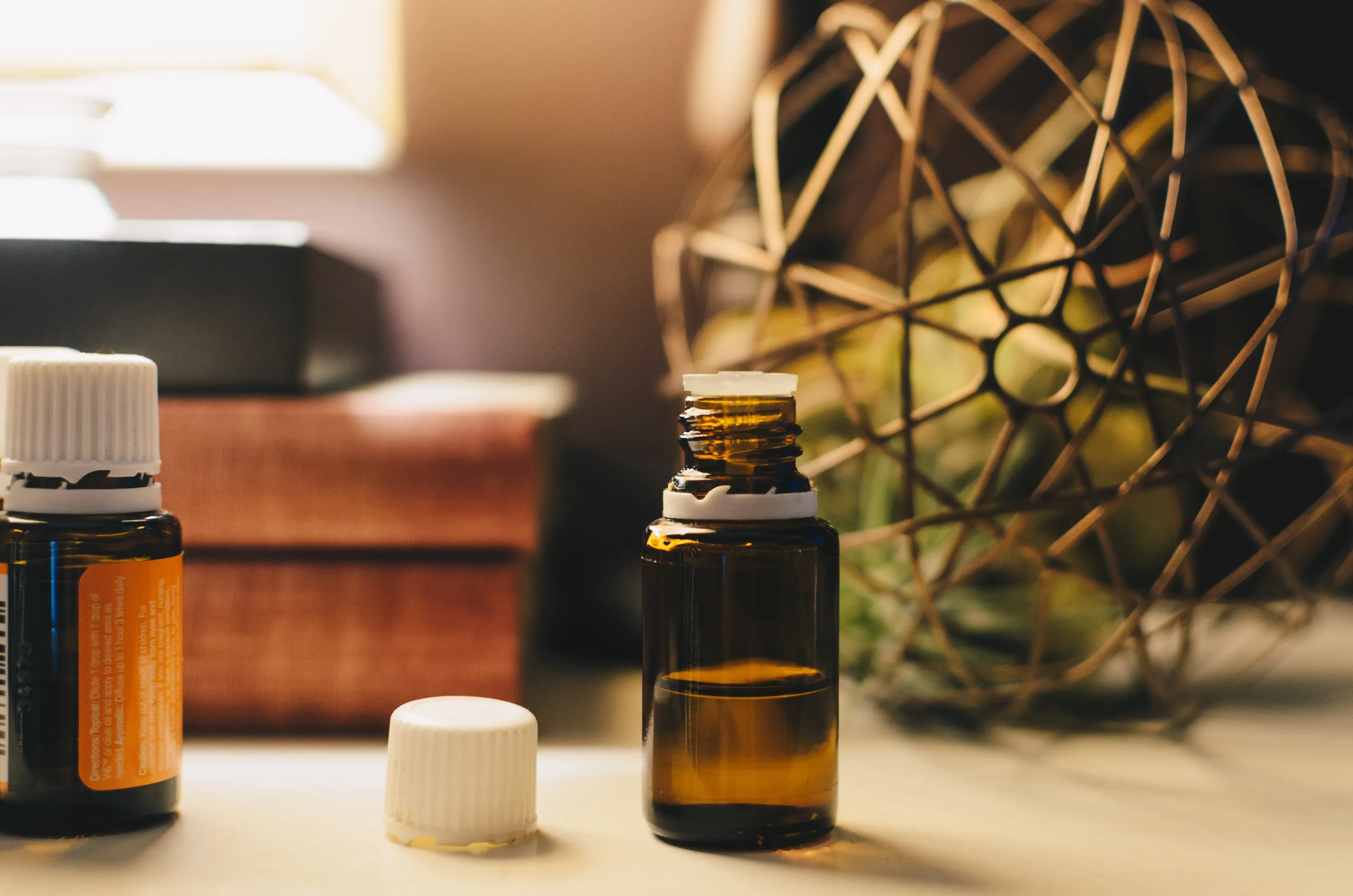
Many people think aromatherapy is a fad or something used only by meditation and spiritualists.
It has been shown that the scent of essential oils affects our brains in several different ways. Essential oils can calm anxiety, uplift our mood, and inspire optimism, while also relieving insomnia.
How to use essential oils
Using a diffuser. It is best to inhale essential oils. This is because our olfactory nerves are directly connected to our brains. The smell travels quickly to the brain, triggering sleep-promoting hormones. In addition to the beautiful scent filling your room and home, you get the added bonus of sleeping better.
In addition to diffusing essential oils, cotton balls soaked in essential oils can be placed near your bedside. Diffusers are inexpensive and available almost everywhere essential oils are sold.
When diffused, essential oils are 100% safe. Children and pets won't be harmed by the scent. In fact, dogs, cars, and kids will sleep better at night too!
Use essential oils in the bath. By adding a few drops of essential oil to a warm bath, you can create a soothing and relaxing experience. This will put you in the perfect mood for sleep.
Warm baths should be taken an hour before bedtime, not right before. Warm water boosts circulation, keeping you awake.
Spray bed linen with essential oil. Spray your bedsheets and pillowcases lightly with a spray bottle, creating a fragrant sleep haven you'll enjoy all night.
To follow is a list of essential oils recommended for sleep problems.
• Chamomile essential oil. The properties of this natural sedative make it extremely conducive to sleep.
• Marjoram essential oil. A natural antidepressant and anxiety reliever that aids in better sleep.
• Clary Sage essential oil. This is also a very calming and natural sedative.
• Frankincense essential oil. The oil's numerous therapeutic properties make it hailed as a miracle oil. It reduces your body temperature to the optimum level needed for quality sleep, as well as clearing your nasal passages so you can breathe deeply.
• Ylang Ylang essential oil. Lowers blood pressure and stimulates feelings of tranquility and peacefulness.
• Lavender essential oil. As well as being a great sleep agent, lavender oil also promotes REM sleep, or deep sleep, when the heart rate slows down and the muscles relax fully.
There is no better way to sleep than this.
• Orange and rose essential oils. When combined together, these two oils make a potent, blissfully fragrant sedative.
• Valerian essential oil. This oil has a relaxing scent that encourages sleep and promotes a sense of tranquility.
• Bergamot essential oil. In addition to reducing heart rate and blood pressure, it relieves anxiety as well.
Alternatively, there are oils that promote alertness and energy. Rosemary, peppermint, grapefruit, lemon, and cypress are some of these. Products containing these ingredients can also cause sleep disturbances, so try not to use them at night. Rather than relaxing you, they will give you a big boost of energy. However, they are perfect hacks to use in the morning, especially if you are tired after a busy day.
Helpful Sleep Tips
Adding a few extra biohacking tips to the list here makes good sense. You might already be utilizing them. In addition to the more specific biohacks discussed here, these extra tweaks will benefit you as well.
Regular exercise. It is important to maintain a regular exercise routine in order to maintain a healthy body, which is essential to a good night's sleep. Exercise doesn't have to be aerobics classes or gym workouts. Bike riding, swimming and nature walks are equally good. Exercise your body as often as possible.
Exercise before bedtime will energize you, so don't do it before bedtime.
Unwind before bedtime. Relax for an hour before going to sleep by reading a book, meditating, or having a quiet conversation with your partner.
You should avoid stressful activities that will keep you up for hours. If you are easily scared or high-strung, don't watch horror movies. Do not argue with your spouse about finances.
Quiet surroundings encourage sound sleep. If family members are up and about, ask them to keep noise to a minimum. Turn off your cell phone. If you are a light sleeper, it is doubly important to take note of any additional noises that could disrupt sleep. Fix any noisy appliances like air conditioners or clanking boilers.
You can tune out noise by playing soft music in your bedroom throughout the night.
Buy the best quality essential oils. It is important to buy only the highest quality essential oils. Ideally, they should be labeled as either 100% pure or 100% organic for optimal benefit.
Invest in a top-quality mattress. It is essential not to skimp on your mattress. It is the very foundation on which your biohack will be built.
Many mattresses are padded with highly toxic materials. Flame retardants, for instance, are extremely harmful to health and sleep quality. It may take years for the toxins to go away, while you continue to breathe them in.
When it comes to mattresses, there is no better investment than a 100% natural mattress. Make sure you shop around and consider various brands before making a decision. It may be expensive, but don't you value your health more than money?
Switch of the Wi-Fi. During sleep, Wi-Fi can interrupt your brain waves. You should switch it off or keep routers out of your bedroom.
Your bedroom should be at a temperature between 60°-67°F for optimal sleep. As you fall asleep, your body temperature drops, so keeping your room cool will help.
When you are cold, prepare a hot water bottle and wear socks to maintain this temperature.
A natural supplement may be helpful if your body lacks certain vitamins and minerals that promote sleep. It is completely different from sleeping pills because it is all natural and has no side effects. Vitamin B-5, vitamin B12, vitamin D, magnesium, iron, calcium, and vitamin E are important for stabilizing the circadian rhythm. If you want to improve your sleep, you can purchase these over-the-counter supplements.
Putting It All Together
So, what can we take away from all this?
• We've learned how to optimize sleep with biohacking.
• We've seen, hacking sleep doesn't require complex science or complex gadgets.
• Biohacking involves making small, sustainable changes to your lifestyle to optimize how your body functions.
• The benefits of biohacking include a hassle-free experience and almost no cost. It promotes sleep naturally.
We've discussed several biohacks, but how do you start to use them? Which ones should you start with? Are they all applicable together?
It's normal to feel overwhelmed if you're new to biohacking. The key is to start small.
Think of biohacking as a toolbox, and all of these techniques are tools in that toolbox.
Your first step is to customize these tools to suit your needs. Then you must tweak them until you get optimal results.
Let's say you want to use binaural beats to improve your sleep. Try downloading some tracks and using them for a few nights. Rate any changes in your sleep on a scale of 1 to 10. 1 would mean that there has been a remarkable improvement and 10 represents little to no change.
The next step is to experiment with different audio tracks until you find the type of auditory hack that works best for you. After that, move on to a new tool and repeat.
Test out your acupressure mat on different surfaces before using it. If you find it uncomfortable, throw it out and move on to another hack.
Remember, there is no best or worst hack for sleep. The golden rule is what works best for you.
Suggestions:
• Identify one or two hacks that resonate with you the most. Try them out for a week or two and see how they work.
• Incorporate the hacks that give you the best sleep into your daily routine. Practice them regularly until they become second nature.
• Repeat the process with another hack.
• My recommendation is to start with the sleep-friendly food hack. It is the simplest and requires no special preparation.
• Don't give up too soon even if you see immediate results or gradual improvements in your sleep over days or weeks.
• In general, biohacking tools do not always provide immediate results. It takes time for your brain to adapt to new triggers you are teaching it. Patience and practice are essential. Before moving on to a new hack, allow two weeks for it to start working.
Remember: Biohacking is a process of experimentation. It is a process of discovery through trial and error of what works best for your sleep patterns.
Conclusion
In addition to hindering your ability to function at your peak, sleep deprivation can severely impact your mental and physical health. It can damage relationships. Most importantly, it can prevent you from being able to enjoy life fully.
The science behind biohacking has proven that it can improve sleep quality. You have nothing to lose and much to gain by implementing these hacks into your daily routine.
Lastly, biohacking is fun! Once you learn it, you'll want to apply it to other aspects of your life, including academic performance, athletic performance, weight loss, and even better rapport with others.
